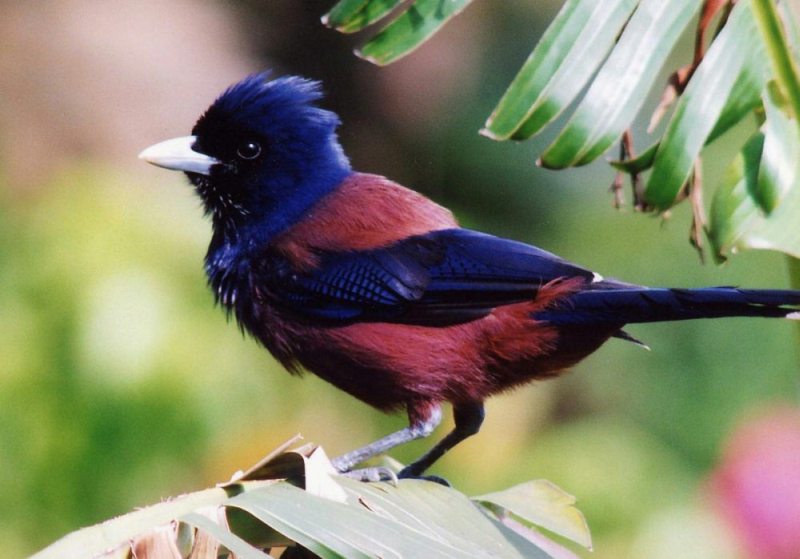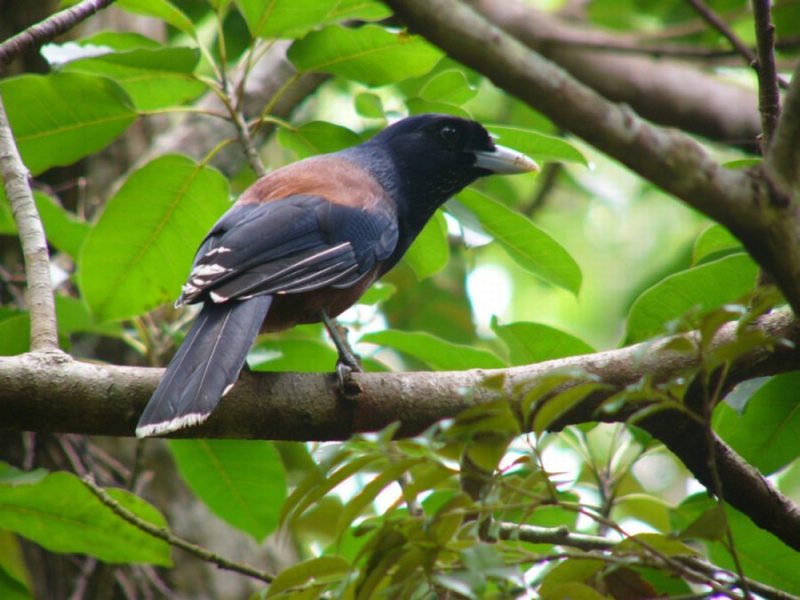

 |
|
【RURIKAKESU or Lidth's Jay】
(scientific name: Garrulus lidthi)
If you hear harsh cries like gyaaah or jaaah when you are following a mountain
path or walking along the foot of a hill, they are from Lidth's Jays,
a little smaller than pigeons but larger than brown-eared bulbuls. And
if you happen to have a glimpse of their two-tone bodies, of purple
and reddish brown, you are verylucky. They are indigenous to Amamioshima (and
two neighboring islands :Kakeromajima and Ukejima) that is their only
habitat in the world. So many people, not just bird-watchers, long
to see them. Here,I'd like to do them honor by adding that
they also have charming voices to coverse with each other.
As you'll see in the
pictures, the ends of their tail and wings are white; and the beak is ivory
white.The breeding season is from February until May and they lay on average
three to five bluish white eggs with no spots. Their nests are usually built in
a hollow of an old tree with lots of dead twigs. But today quite a few Lidth's
Jays are seen building their nests somewhere under the eaves of homes at the
foot of mountains. We can't tell exactly why they do this. Maybe they can't find
enough suitable trees in the woods or want to protect their chicks against crows
and stray cats by taking advantage of human presence. Because chicks leave their
nests before acquiring enough flying power, they often fall onto the
ground, becoming very vulnerable to attack. Parents struggle to lead them into
the woods as soon as possible.
It is said that a large
quantity of their feathers was once exported to Europe as ornaments for ladies'
hats. In 1921 they were designated as a protected species. Happily we can say
for sure their population is now recovering.
|
